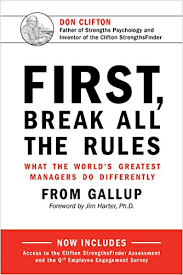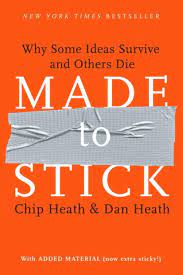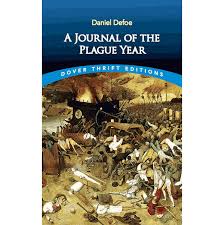Everyone who has tried to get a book published recently knows the question every publisher will eventually ask: “What’s your platform?” That is, how well known are you? Will you be able to let lots of people know about your book once it’s published? Do you speak to groups regularly, and if so, how many? Do you have a prominent professional position or a large following in social media? If you don’t, publishers aren’t usually interested.
 Once upon a time, publishers could successfully sell books of not-so-famous authors through the thousands of bookstores spread around the country. But with the rise of e-sales and the resulting demise of two-thirds of all brick-and-mortar book shops, publishers have had to rely more and more on authors to make a book known.
Once upon a time, publishers could successfully sell books of not-so-famous authors through the thousands of bookstores spread around the country. But with the rise of e-sales and the resulting demise of two-thirds of all brick-and-mortar book shops, publishers have had to rely more and more on authors to make a book known.
But what if the content of your book means you need to remain anonymous. Maybe you have a memoir in the works, but you don’t want to directly expose sensitive information about those close to you, information like past addictions or trauma.
Maybe (more intriguingly) you are a whistleblower. If your identity in a particular organization were to become public, then you might expose yourself to retaliation. Nonetheless, publishers want the author out there in person, using your real name to promote the book. Otherwise they won’t touch the project.
What’s the solution?
One option is to find a coauthor with a platform who could be the public face for the book. Ideally your coauthor would have some credentials in the main topic of your book. If addictions or trauma is involved, then teaming with a psychologist might make sense. If corporate misdoings are the focus, then a business writer could work. Having a coauthor with an established platform can even help you get published even if you don’t need or want to be anonymous.
Pairing with someone who will do all the promotion and who will already be well-known could mean your coauthor gets more than half of the royalty—even if you write half or more of the book. But hopefully the book will do at least twice as well as an anonymous solo effort. So you should break even or better.
In fact, having a coauthor could make the difference between being published and not being published at all.
—





 I knew that in the book Dante is taken on a tour of hell with the ancient Roman poet Virgil as his guide. The best-known line, “Abandon all hope, ye who enter here,” greeted me as it greeted Dante on entering the underworld. There he found descending circles of the damned for such sins as lust, greed, violence, fraud, and betrayal.
I knew that in the book Dante is taken on a tour of hell with the ancient Roman poet Virgil as his guide. The best-known line, “Abandon all hope, ye who enter here,” greeted me as it greeted Dante on entering the underworld. There he found descending circles of the damned for such sins as lust, greed, violence, fraud, and betrayal. It would be like integrating the Star Wars universe or the world of Harry Potter into a biblical cosmology, where Darth Vader and Dumbledore both find themselves under the sway of a powerful Creator God who nonetheless uses sacrifice to resolve all storylines, reconcile all things, renew hope, and make everything right.
It would be like integrating the Star Wars universe or the world of Harry Potter into a biblical cosmology, where Darth Vader and Dumbledore both find themselves under the sway of a powerful Creator God who nonetheless uses sacrifice to resolve all storylines, reconcile all things, renew hope, and make everything right. After waiting a moment and hearing nothing, he said, “Ok, then,” and with a wry smile that impishly suggested we had had our chance and wasted it, he began.
After waiting a moment and hearing nothing, he said, “Ok, then,” and with a wry smile that impishly suggested we had had our chance and wasted it, he began. Over a hundred and twenty years ago, Edith Wharton, the first woman to win the Pulitzer Prize, also suffered from this common malady. In 1899 she wrote to her publisher,
Over a hundred and twenty years ago, Edith Wharton, the first woman to win the Pulitzer Prize, also suffered from this common malady. In 1899 she wrote to her publisher,  “You can cheer on the other girls. You can listen to what Coach says and do it immediately. You can decide not to get down on yourself if you make a mistake but instead try to do better next time. That’s attitude.
“You can cheer on the other girls. You can listen to what Coach says and do it immediately. You can decide not to get down on yourself if you make a mistake but instead try to do better next time. That’s attitude. The author thought the student’s paper was excellent and began referring to it, even reading from it, in his lectures over the next several years. Slowly, in his class notes, the student’s name became detached from the quotations. Then the quotation marks disappeared. When it came time to write a book based on these lectures, the author had forgotten where this material in his notes had come from and assumed it was all his own.
The author thought the student’s paper was excellent and began referring to it, even reading from it, in his lectures over the next several years. Slowly, in his class notes, the student’s name became detached from the quotations. Then the quotation marks disappeared. When it came time to write a book based on these lectures, the author had forgotten where this material in his notes had come from and assumed it was all his own. That, however, while valid, can be a bit dull. Here’s another strategy. Extend the metaphor embedded in the cliché. Again, good, general advice but can I give an example? Yes, I can.
That, however, while valid, can be a bit dull. Here’s another strategy. Extend the metaphor embedded in the cliché. Again, good, general advice but can I give an example? Yes, I can. Counterintuitively, limiting your audience can increase your readership. How? By making sure you go deeply into that narrow group. Writing successfully for all parents is hard because there are so many other resources and bestselling books already available. You might therefore get fewer readers for the broad audience than for the narrow one where there is less competition.
Counterintuitively, limiting your audience can increase your readership. How? By making sure you go deeply into that narrow group. Writing successfully for all parents is hard because there are so many other resources and bestselling books already available. You might therefore get fewer readers for the broad audience than for the narrow one where there is less competition.